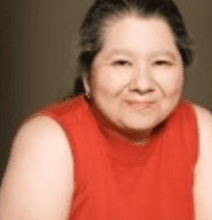People who have BPD often have tremendous issues with anger — both expressing it and being the recipient of it. They will often go to extreme lengths to make people happy in order to avoid having people get angry at them. The flip side of that is that they themselves can go into a drop dead rage at the drop of a hat. I will examine why this happens.
Some psychiatrists believe that people have intense issues around anger because when they were children, they were not “allowed” to express it and, in some cases, told that even feeling it was somehow bad. As they grow up, they learn that anger is a “bad” thing and so learn to go to great lengths to avoid having it in their life.
If they have grown up in a setting where anger is not okay, it becomes just one more “bad feeling” they feel and they will either try to run away from it or will be so overwhelmed by it that it boils over because they do not know how to contain it. In many cases, though the person feels anger on a regular basis and engages in expressing it negatively they are unaware that they are even feeling this emotion and can not even identify it as a feeling. For them, it “just happens”. They feel victimized by it because they don’t know where it comes from or how to stop it from happening.
Sometimes anger can be felt more remotely in terms of low-lying irritation or annoyance which is then displaced onto other people. This is a partial explanation for why people with BPD are always “pissed off” at the world. Most people who have this kind of unaddressed anger channel it into extreme feelings of anxiety because they have to express it somehow. In some cases, it can be expressed somatically — that is as irritable bowel syndrome or extreme headaches caused by tension.
The crux of the matter here is that almost everyone is afraid of anger because we are not taught how to express it properly. Anger is simply one of many emotions. It is neither good nor bad. The way you choose to deal with it is what attributes a value to it. When you are able to understand and accept that anger is an emotion like so many others and that it has no power to hurt you, you will be on your way to setting yourself free. The only thing negative about anger are the consequences involved if you deal with your anger inappropriately by lashing out and yelling at people or breaking things or turn it in on yourself.
People like to say that depression is anger turned inwardly. I think depression in people with BPD is caused by years of neglect and not feeling heard, being scapegoated by the family of origin and feeling bullied. Yes, all those things can lead a person to feel angry but that anger is reactive in nature. The resulting “depression” is just the way the person with BPD chooses to express those angry feelings.
One of the ways to deal with anger issues is to learn and practice assertiveness. When you become an assertive person you learn how to stand up for yourself so you don’t get walked all over by people. Learning how to stand up for yourself assertively allows you to have a voice so you can express yourself in a rational manner and, hopefully, be heard by the people with whom you are interacting with. It can alleviate some of the feelings of helplessness a person can feel in an intimate relationship.
The other way to learn to deal with anger is to learn conflict negotiation skills. This is not for the faint of heart because it requires you to look closely at both sides of an argument and figure out what you really want rather than hiding behind what you think you want.
Another reason that a person may be afraid of anger is because they fear retaliation from the other person. They worry that the other person will abandon them if they are “not nice enough”. We are taught from childhood that “nice girls don’t “do conflict” and told to suppress our angry feelings. But the bottom line is that conflict is found in every single relationship be it an interpersonal one or a work relationship. So, it is imperative that we learn how to approach conflict so that it can be productive and not confrontational.
A third way is to learn anxiety reduction techniques such a mindfulness meditation and box breathing. In my experience, my anger was always anxiety-fueled feelings that had completely run amok. Once I learned how to get better control over my anxiety, my anger levels began to diminish.
Being able to express anger in an assertive, productive manner will help your relationships a great deal. As with all things related to BPD, one of the first steps in recovery is learning to take responsibility for your feelings, words and actions. Without that component you will stay stuck.
[irp posts=”6667″ name=”Recovering from Borderline Personality Disorder Means Learning To Change The Way You Think (by Dee Chan)”]
About the Author: Dee Chan
 Dee Chan was diagnosed with BPD more than 35 years ago back when the diagnosis was still fairly new and not very well understood. She has been living with it and coping with it ever since and finding ways to thrive despite it. She has been able to put it into complete remission and turned her life around completely through the practices of gratitude, forgiveness and accountability. Find out more about Dee’s work on her website bpdnomore.com.
Dee Chan was diagnosed with BPD more than 35 years ago back when the diagnosis was still fairly new and not very well understood. She has been living with it and coping with it ever since and finding ways to thrive despite it. She has been able to put it into complete remission and turned her life around completely through the practices of gratitude, forgiveness and accountability. Find out more about Dee’s work on her website bpdnomore.com.


I want to share this article via email with some friends.
I was diagnosed with childhood PTSD late in life; depression. Then introduced to BPD. Scary all the labels. Went to class for BPD. Hard work, lots of homework then in class felt very judged. That was 6-2014. I believe the materials have been improved since then. May face having to get in a BPD group again; not sure I’m willing. I did EMDR therapy for PTSD. Helpful but recently let myself out of my boundaries; am in a mess. Gonna get through it though. Now that I’ve seen I’m not willing to stay long.
I think have this disorder,and how can I get it diagnosed please?as I want a better relationship with my only daughter as she does not want my behaviour being passed on to my grandsons (3yrs&2 months).
Carole a good starting point would to speak with a doctor. He or she will be able to refer you to someone who can diagnose your symptoms and help manage them.